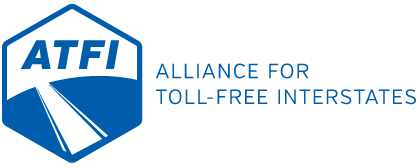By The Post and Courier
Our interstate system has facilitated an unrestricted supply chain of goods, services and people efficiently for the better part of 50 years. These freeways are indispensable infrastructure for every aspect of our economy, and critical for our competitiveness and quality of life. However, the state has no long-term plan for how to comprehensively fund maintenance and improvements.
Some libertarians and "conservative think tanks" - and even my friend Rep. Joe Jefferson - are advocating placing tolls on existing interstate lanes, suggesting it is the political and funding panacea. In reality, as has been shown time and again, this notion of tolls as savior is misplaced and too costly for everyone.
Even if you can get past the compromised principle of paying for the same road twice - both with a fuel tax and a toll tax - there are other reasons why placing tolls on currently non-tolled interstate lanes will create costly inefficiencies in the supply chain.
First, tolls are expensive to administer, collect and enforce, with costs sometimes reaching 33.5 percent of the revenue generated: that's certainly not a "conservative" way to tax. Administration of the gas tax is 1 percent of revenue generated. Transportation is fundamental to the economy, and as such, it should not be taxed inefficiently. Besides, South Carolina does not have the sustained traffic density to make tolling cost-effective.
Second, it's a fact that drivers (especially commercial fleets) avoid tolls by diverting onto secondary roads, leading to longer, less efficient routes with safety issues.
Third, tolling existing lanes of interstate is generally prohibited by federal law (although private-sector profiteers want to change that). If tolls are placed at state borders, or locals are given "free-passes," they become discriminatorily unconstitutional, flying in the face of the Commerce Clause of the U.S. Constitution. And finally, people simply hate tolls - unless they're optional.
Truck fleet operators have a legitimate argument in that they pay every state through which they run an "apportioned" fuel tax and registration fee (some states even collect property taxes) based upon miles operated and fuel burned there. So they already pay a fair share. They have clearly told the Legislature they aren't opposed to adjusting user-fees, but they are against creating costly new collection mechanisms to extract them.
Some states have considered them. A 2009 study on the impacts of proposed tolls on Interstate 80 in Pennsylvania estimated shippers, truckers and consumers would suffer a combined annual deadweight loss in the tens of millions of dollars per year just due to tolls. In North Carolina, projected traffic diversion from proposed tolls on Interstate 95 would have cost businesses along the corridor an estimated $1 billion in revenue over several decades due to toll-averse highway users bypassing their businesses along with the tolls.
Virginia, home to one of the nation's largest ports, toyed with tolling existing lanes on I-95 as part of a transportation funding plan. Instead, the state passed a comprehensive transportation funding reform bill that included a provision effectively prohibiting I-95 tolls. They all realized punitive and inefficient toll charges, combined with diversion, would negatively impact commerce.
Georgia has invested $2 billion on its section without tolls. If South Carolina wants to keep I-95 "the Corridor of Shame," toll it. States that would balkanize, and in some cases even "monetize," these public assets would betray those businesses and citizens who have established presences along the newly-tolled corridor.
There is no question that the long-term sustainability of this network must be a priority. Growing states like South Carolina will have to accelerate investments, with Congress, the Legislature and the DOT Commission making funding interstates their top priority.
There are sensible, fair and cost-effective solutions that don't unduly stifle growth and efficiency. But tolling existing lanes of interstates is not one of them.
There are reasons why no state has ever tolled existing lanes of interstate. We don't need to go there.
Paul Campbell is executive director of the Charleston International Airport and a state senator representing Berkeley, Charleston and Dorchester counties.

